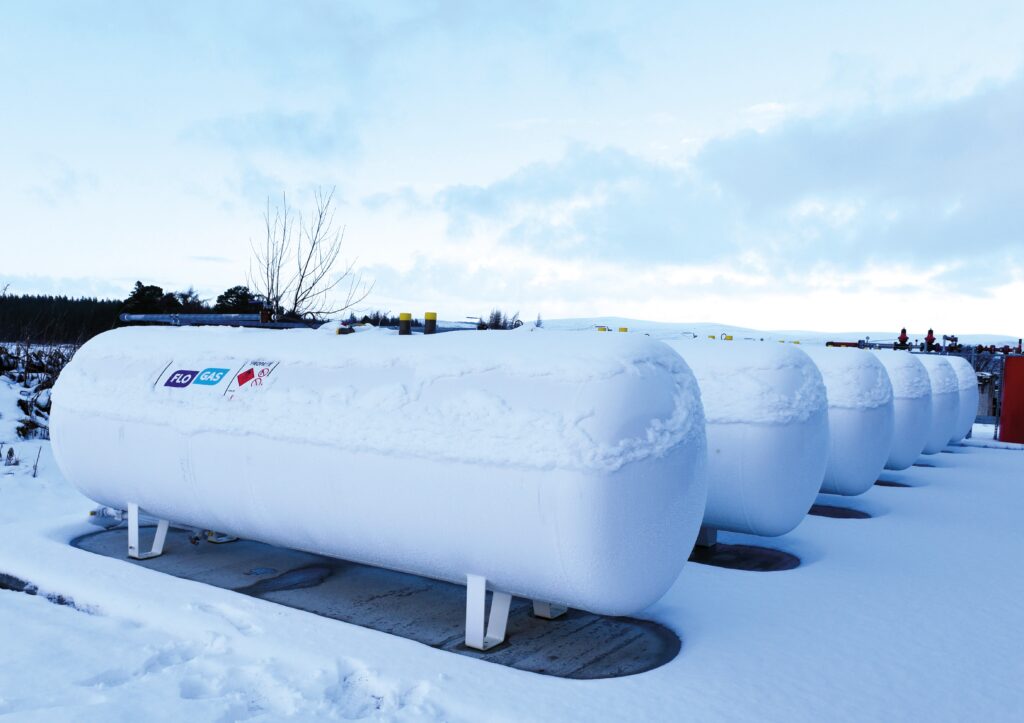Blog
Liquid gas offers environmental savings from the ground up
20/01/2021
Whilst the aggregate industry plays a crucial role in the world of construction and ultimately the development of our surroundings, it also faces huge pressure when it comes to its impact on the environment. Central to this is climate change, which is causing dramatic and radical changes in government energy policy as a way of combatting its effects.
A greener political agenda
Thanks to increasingly stringent eco legislation, UK businesses of all kinds are now having to act fast to minimise their carbon footprint. Nowhere is this more relevant than in aggregate and asphalt manufacturing, where high-energy processes are a fundamental part of production.
Landmark policies, such as the UK government’s ‘Net Zero’ target, which aims to bring the country’s greenhouse gas (GHG) emissions to zero by 2050[1], are having a major impact, obliging companies to make their operations more environmentally friendly. In December 2020, the government upped the stakes again, pledging to cut CO2 emissions by 68% by 2030 (compared to 1990 levels)[2]. This means the UK now needs to move faster than any other major economy in the race to net zero.
To meet these ambitions, the government plans to transition away from high carbon fossil fuels to lower carbon alternatives.[3] As a result, construction businesses not connected to the mains gas grid and still relying on the likes of oil, are now on the look-out for cleaner, more ec0-friendly energy sources. Whilst oil may be a tried and tested approach, the tides of change in UK policy prove that lower carbon fuels, delivering improved air quality will most certainly be favoured long term.
The good news is that there are reliable, abundant off-grid alternatives that offer compelling environmental, financial and logistical benefits – two of which are liquefied petroleum gas (LPG) and liquefied natural gas (LNG).
The benefits of liquid gas
As the rising stars of alternative energy, LPG and LNG are making waves due to their exceptional green credentials and energy efficiency. In fact, they both boast the lowest carbon emissions of any 0ff-grid conventional fossil fuel and have a 20-30% lower carbon footprint compared to various types of oil. [4] Both LPG and LNG offer significant reductions in nitrous oxide emissions (NOx) and sulphur oxides (SOx) and emit almost no Particulate Matter (PM) – a major contributor to air pollution.[5] For large energy users keen to stay compliant with government energy regulations, such as the Clean Air Strategy[6], LPG and LNG offer a truly compelling solution.

As well as the environmental benefits, switching to LPG and LNG can also deliver potential cost savings for businesses, boosting their bottom line. In fact, Flogas customers in the construction industry have achieved significant financial savings of up to 19% after switching from oil to LPG.
LPG in action

Asphalt pioneer cuts carbon by 25% and costs by 19% with LPG
Pat Munro is one of the largest privately-owned contractors in Scotland, operating its own quarries and manufacturing its own roadstone and concrete, as well as recycled aggregates and tarmacadam. With production creating a huge annual heat demand, the company was previously using up to half a million litres of gas oil to heat tens of thousands of tonnes of rock in its roto dryer each year (generating 1,114 tonnes of CO2e in the process).

Keen to cut costs, carbon and enhance efficiencies, Pat Munro worked with Flogas to replace its gas oil burner with a cleaner, more cost-effective LPG heating system. As, a result, the company has now reduced its annual carbon emissions by 25% and its fuel costs by almost 19%.
Flogas managed the switchover from start to finish, including specifying, designing, and installing the fuel system and LPG tanks. Read more here.
Carbon Offsetting: the final piece of the puzzle

Whilst many construction businesses are working hard to reduce their carbon footprint at source, achieving carbon neutrality across all operations is not always possible. That’s where carbon offsetting offers a valuable solution. Where emissions are unavoidable, it allows businesses to use ‘carbon finance’ to offset 100% of their gas carbon emissions. This money helps to fund verified conservation and renewable energy projects that deliver quantifiable greenhouse gas reductions. Learn more about Carbon Offsetting here.
Making the switch
With the UK’s largest delivery network and a team of dedicated experts, Flogas is perfectly placed to help construction businesses make the all-important switch to LPG and LNG. Its expert team have been working with quarrying, mining and building materials businesses for more than 35 years, providing turnkey, tailored energy solutions that deliver the best business results.
For more information on how LPG or LNG could benefit your business or to become part of Flogas’s Carbon Offsetting Scheme visit the team at Hillhead Digital (30-31 March). Alternatively click here or call us on 0800 0778 557.

[1] https://www.gov.uk/government/news/uk-becomes-first-major-economy-to-pass-net-zero-emissions-law
[2] https://www.bbc.co.uk/news/science-environment-55179008#:~:text=The%20PM%20has%20vowed%20to,is%20hosting%20on%2012%20December.
[3]https://assets.publishing.service.gov.uk/government/uploads/system/uploads/attachment_data/file/700496/clean-growth-strategy-correction-april-2018.pdf
[4] https://www.wlpga.org/wp-content/uploads/2018/09/The-Role-of-LPG-in-Shaping-the-Energy-Transition.pdf
[5] National Atmospheric Emissions Inventory – Emissions Factor database 2016
[6] https://www.gov.uk/government/publications/clean-air-strategy-2019